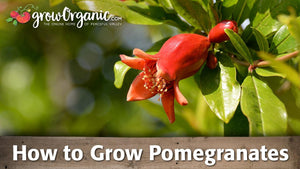Item Number: FT228
Potted Pomegranate Tree - Kashmir
Tangy flavor with rich tradition.
The Kashmir Pomegranate Tree is celebrated for its medium-sized fruit with a tangy flavor and deep red seeds. This variety is perfect for juicing, cooking, or adding a flavorful punch to savory dishes. Thriving in full sun and well-draining soil, the Kashmir tree is self-fruitful and highly drought-tolerant, performing well in various climates. Its vibrant flowers and reliable fall harvests make it a practical and ornamental choice. With its rich flavor and culinary versatility, Kashmir is a must-have for pomegranate enthusiasts.
Potted Tree
- Zones: 8-10
- Chill hours: 150 - 200
- Harvest: October 2 - November 1
- Looks: Medium-size fruit with light pink to red skin.
- Personality: Ruby red seeds have intense flavor with no overbearing acidic taste.
- Facts of note: Pomegranates are not grafted onto any rootstock, so in areas where it gets cold enough to freeze, the tops of the plants die back sometimes, they still will come back and produce the same fruit. Hummingbirds love the pomegranate flowers. Named for its delicious blend of complex flavors. Kashmir has spreading growth habit and can be grown as a shrub. Very container compatible. Rich flavor beloved by pomegranate aficionados, makes good juice.
- Pollination: Self-pollinated.
Pomegranate ‘Kashmir Standard’
Pomegranates have earned their place as a beloved and versatile fruit for their unique flavor and numerous health benefits. The Kashmir Pomegranate is a remarkable variety known for its delightful taste and prolific fruit production.
Characteristics of Kashmir Pomegranate
The Kashmir Pomegranate, scientifically known as Punica granatum, is a deciduous shrub or small tree that can grow up to 10-15 feet in height. This variety is characterized by its striking deep red flowers and glossy green leaves, which add ornamental value to your garden. However, it is primarily cultivated for its delectable and juicy fruit.
The fruit of the Kashmir Pomegranate is medium-sized, typically measuring about 2-3 inches in diameter. It boasts a rich, sweet-tart flavor that is both refreshing and satisfying. The deep crimson arils inside the fruit are not only visually appealing but also packed with essential nutrients.
Cultivation Tips
Growing Kashmir Pomegranate can be a rewarding experience, whether you are an experienced gardener or a novice. Here are some essential tips for successfully cultivating this remarkable fruit:
-
Climate and Location: Kashmir Pomegranates thrive in regions with a Mediterranean climate, characterized by hot, dry summers and mild winters. Choose a sunny spot in your garden with well-draining soil for optimal growth.
-
Planting: When planting your pomegranate, ensure that the soil is rich in organic matter and has a pH level between 5.5 and 7.0. Dig a hole that is slightly larger than the root ball of the potted plant and place it at the same level it was in the pot. Space multiple plants about 10-12 feet apart to allow for proper air circulation.
-
Watering: While pomegranates are drought-tolerant once established, they require regular watering during their first year. Ensure the soil remains evenly moist, but avoid waterlogging.
-
Pruning: Pruning is essential to maintain the shape of the shrub and encourage fruit production. Prune in late winter or early spring to remove dead or weak branches and shape the plant.
-
Fertilization: Fertilize your Kashmir Pomegranate in the spring with a balanced, slow-release fertilizer. Avoid excessive nitrogen, as it can hinder fruit production.
-
Harvesting: Pomegranates are typically ready for harvest in late summer to early fall. They should be picked when they have reached full color and make a metallic sound when tapped. Use pruning shears to cut the fruit from the plant, leaving a small portion of the stem attached.
The Kashmir Pomegranate is a captivating fruit variety that not only enhances the aesthetic appeal of your garden but also provides you with a delicious and nutritious treat. With proper care and cultivation, you can enjoy the beauty of its vibrant flowers and savor the health benefits of its juicy, antioxidant-rich fruit. Add this remarkable pomegranate variety to your garden and indulge in its unique blend of taste and wellness.
Visit our Fruit Tree Central for a listing of all our fruit tree videos and articles.
Visit Tree Characteristics for a listing of all our fruit & nut tree growing characteristics.


Check Your Zone Compatibility:
Compatible with your zone.
Growing Zone for

Our Guarantee To You
Since 1976, we've served our customers at every stage of growing. Please contact us at any time. We are happy to support and assist you.
Shipping Information
Shipping Information
Cannot ship to the following states: HI, AK, PR, GU, VI
Shipping Weight: 5.5 lb
Dimensions: 35.9"L x 3.9"W x 3.9"H
Features
Features
- Flavor Pick
- Potted
- Self-fruitful
- Suited to Warmer Climates
Characteristics
Characteristics
Planting & Care
Planting & Care
Useful Information
Useful Information
Guarantee
Guarantee
We guarantee the perishable items we sell to be in good, viable condition when we sell them. Perishable items include, but are not limited to, garlic bulbs, flower bulbs, seed potatoes, onion sets & transplants, potted or bare root trees, vegetable crowns, etc. If your perishable item arrives in substandard condition, take photographs and please contact us within 3 days of the purchase date (or delivery date) and we will provide you with a refund of the purchase price (excluding shipping costs), or a replacement. Accordingly, we urge you to open any boxes marked as ""Perishable"" immediately upon receiving them and inspect the shipment thoroughly (do not crack open heads of garlic, we do not accept claims on cracked garlic). Because some perishable items can deteriorate very quickly, we cannot accept any claims beyond the 3-day time frame as it becomes too difficult to determine if these items were delivered in substandard condition, or if they turned into such substandard condition because of having been improperly cared for or stored once delivered.
Share
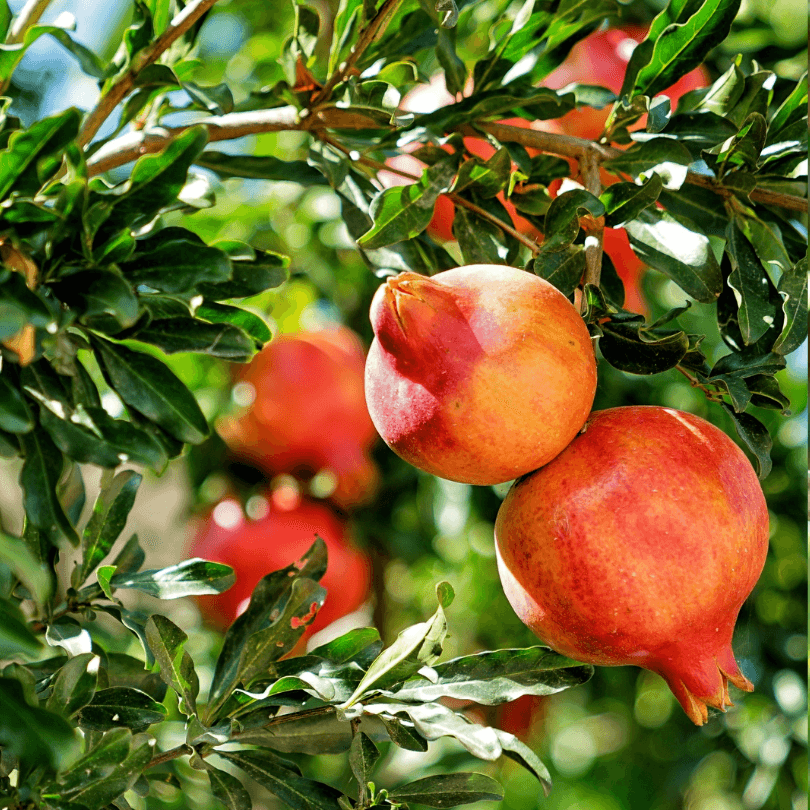
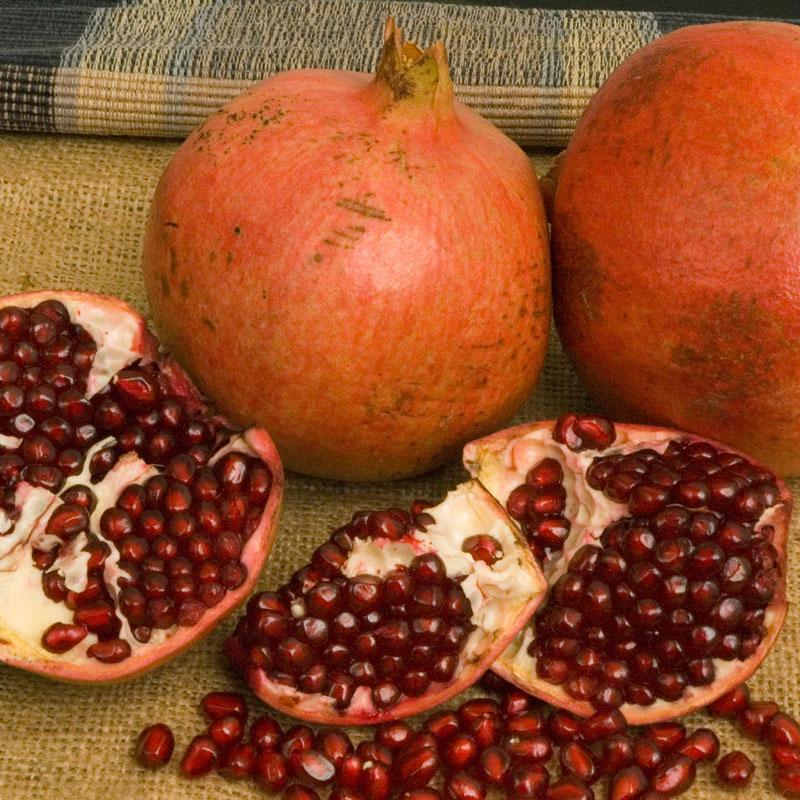
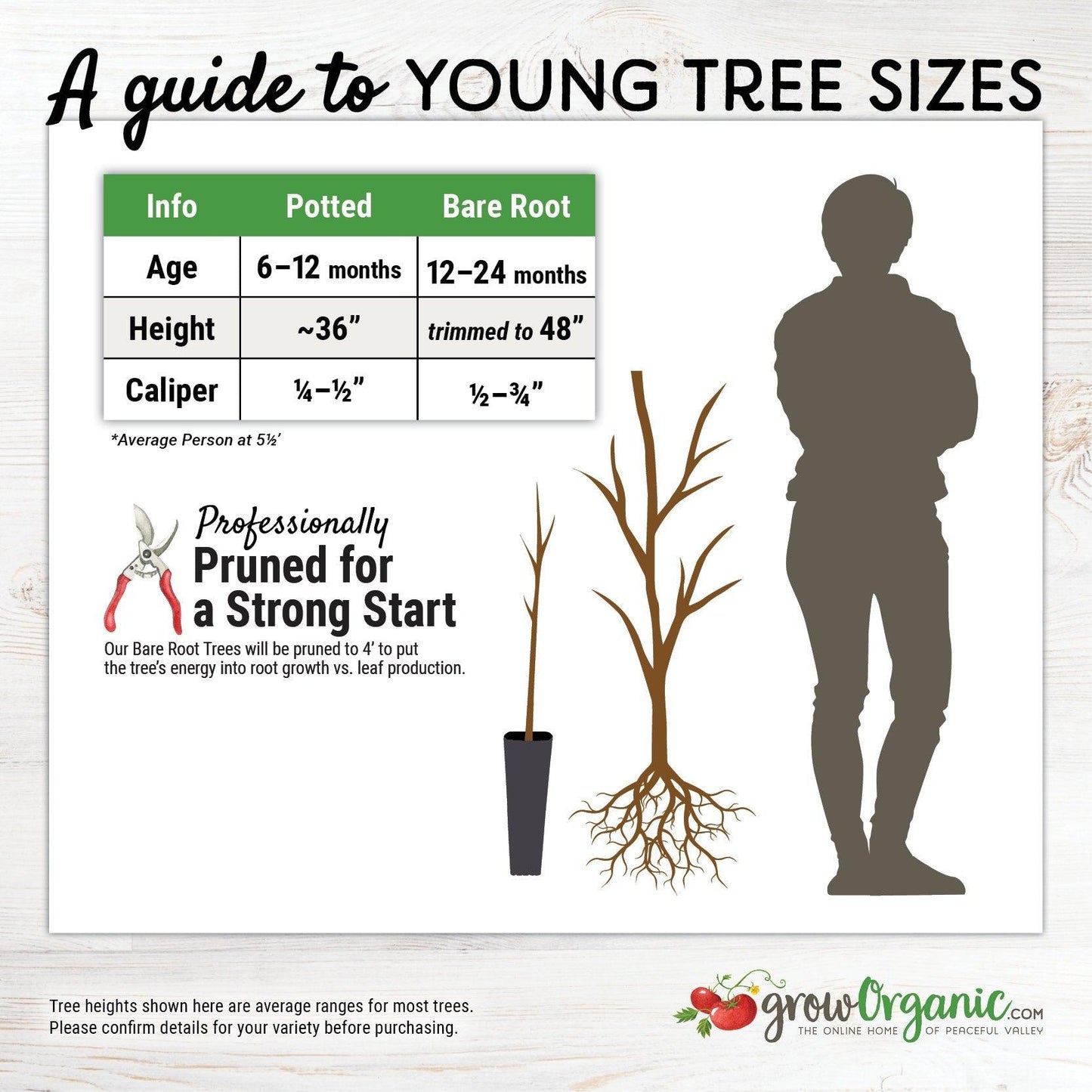
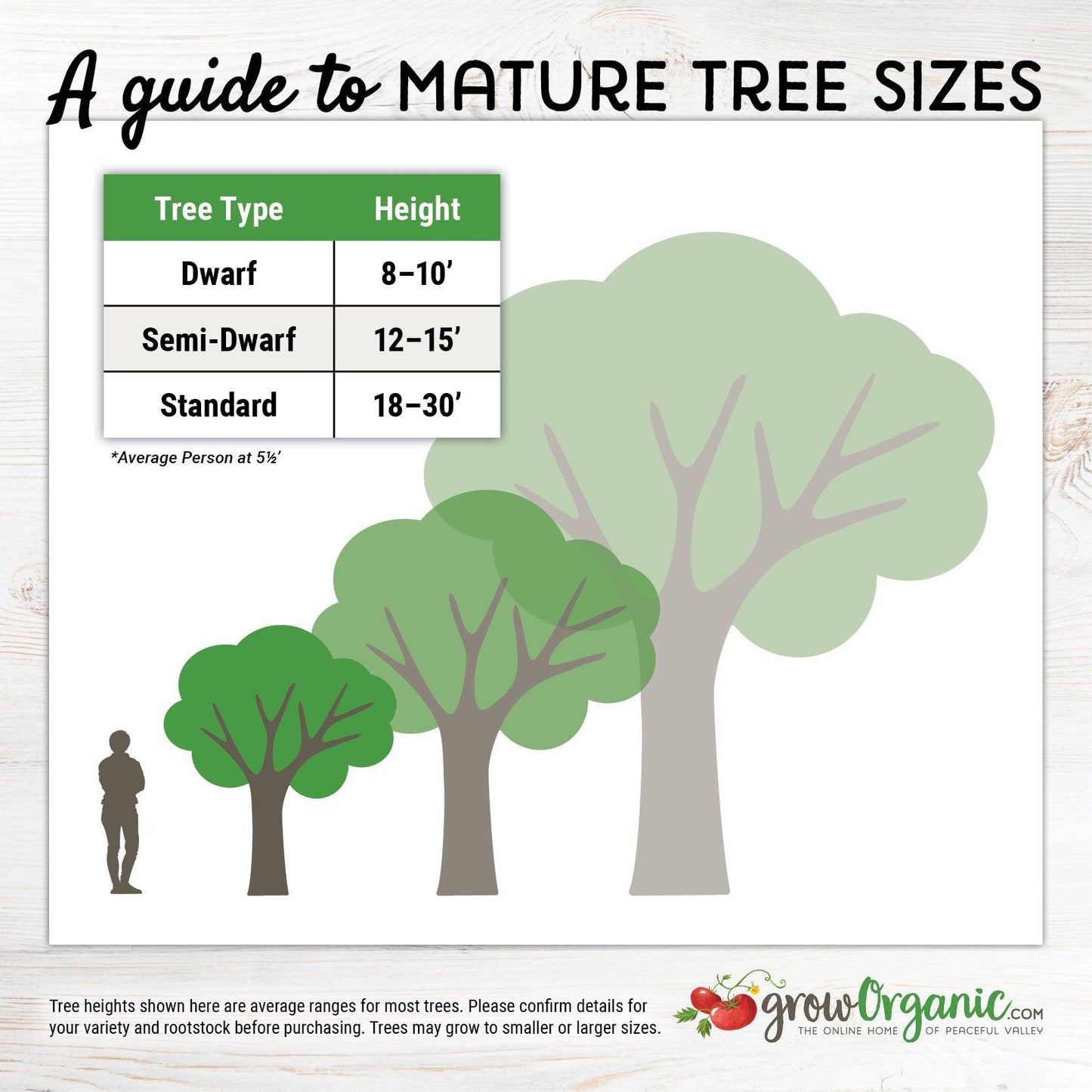
I've had this tree for five years now. Nice looking shrub/tree, covered with blossoms, but they never set fruit. Even though the flowers have a faint sweet smell, they don't attract bees like other nearby trees and succulents. I've tried hand pollinating but the flowers still fall off. A neighbor with a different variety has many bees and lots of fruit. Disappointing.
This is by far the best condition I have seen when I ordered my plants! Thank you so much for plants delivered in a quick time, and very healthy!!
I received my kashmire pomegranate tree about a week ago. Its already starting to sprout little buds and leaves! It arrived in great shape, and was packaged well. I’m looking forward to having pomegranates growing in our yard over the next few years! I would definitely buy from GrowOrganic again in the future.
I am very happy with the size and health of the plants I received. Both are doing well, with healthy green leaves emerging.
This tree/shrub came very green and healthy. It's about a yard tall and have been planted a couple of weeks, so far so good. They came packaged very nicely and I think they are good quality.





